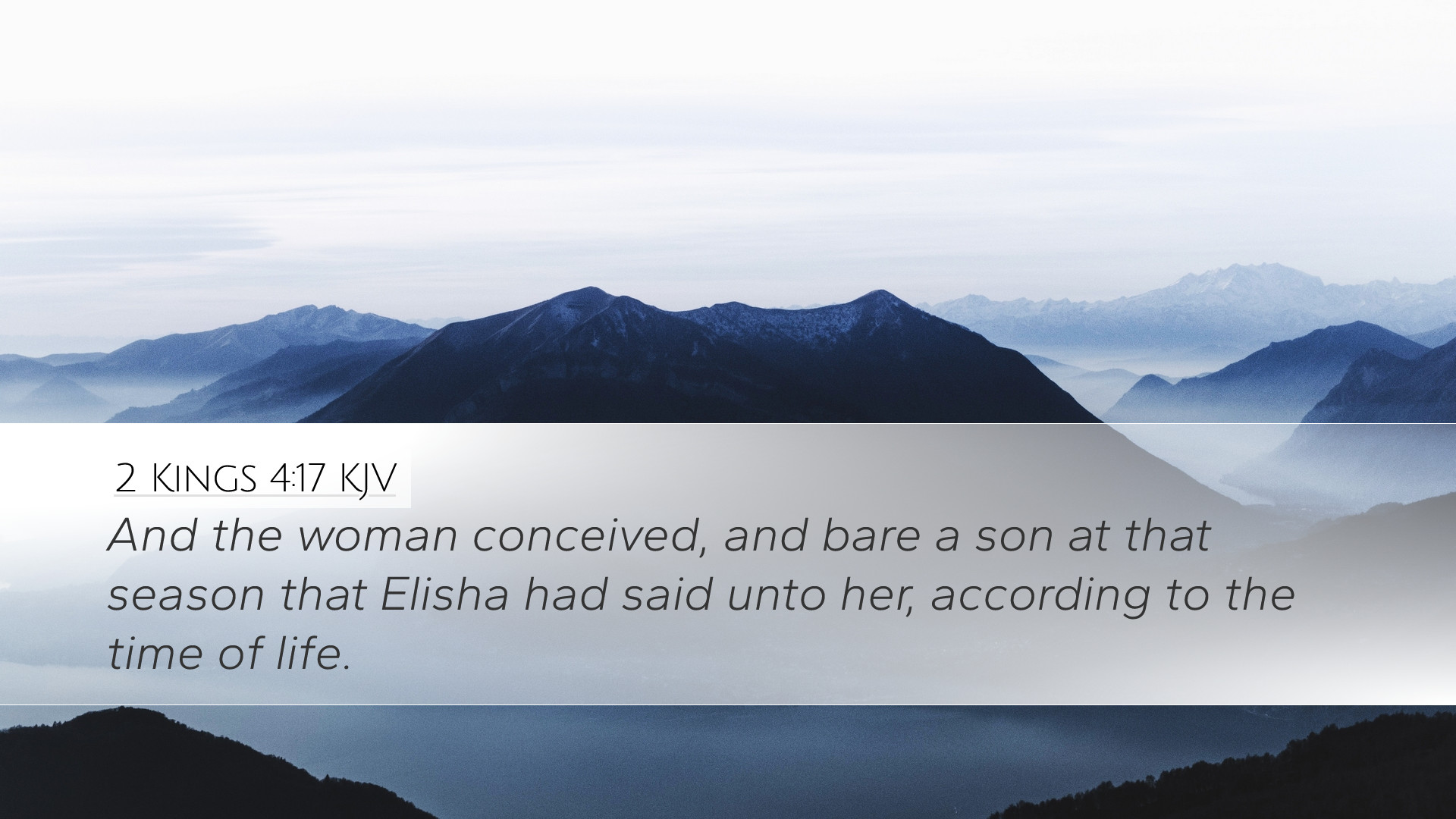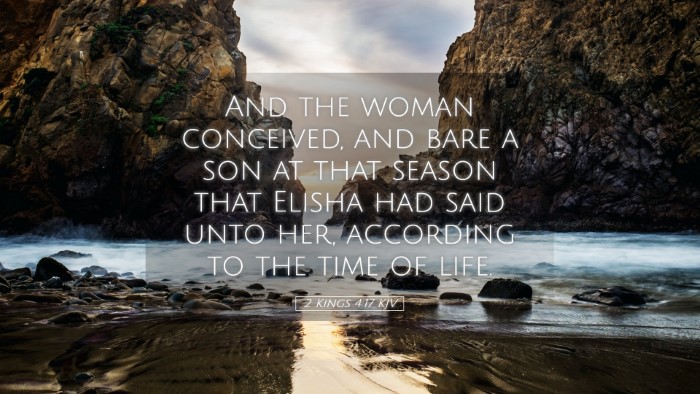Commentary on 2 Kings 4:17
This verse encapsulates a profound moment in the narrative of the Shunammite woman, affirming themes of faith, expectation, and divine providence. Below is a synthesis of insights from various public domain commentaries, highlighting their significance for pastors, students, theologians, and Bible scholars.
Verse Context
2 Kings 4:17 states: "But the woman conceived, and bare a son at that season that Elisha had said unto her, according to the time of life." This verse is located in the account where the prophet Elisha, having been shown kindness by a wealthy woman from Shunem, promises her a son, despite her initial skepticism due to her barrenness.
Examination of Key Themes
-
The Power of Faith
Matthew Henry emphasizes the Shunammite woman’s faith and how it attracted divine favor. Despite her doubts, her hospitality towards Elisha illustrates a deeper trust in God’s provision—one that transcends her circumstance.
-
Divine Timing
Albert Barnes notes the phrase “according to the time of life” as significant, indicating God’s sovereign timing in fulfilling promises. The timing of the birth aligns with the divine plan, showcasing that God operates according to His schedule and not ours.
-
God’s Grace in Fulfillment
Adam Clarke interprets the birth of the son not merely as a biological event but as a fulfillment of God's promise, exemplifying God's grace towards those who faithfully serve Him. This aligns with the broader narrative of God's redemptive work.
Pastoral Implications
The implications of 2 Kings 4:17 are manifold for pastoral ministry:
-
Encouragement in Barrenness
This verse serves as an encouragement for those who are experiencing spiritual or emotional barrenness, affirming that God can and will provide in His timing.
-
Faith and Hospitality
Pastors may encourage congregants to cultivate an attitude of hospitality and service, paralleling the Shunammite woman’s life, emphasizing how personal investment in God’s work can lead to unexpected blessings.
-
Trusting God’s Promises
The community of believers is reminded to remain steadfast in faith, trusting that God hears and answers prayers, often in ways beyond our comprehension.
Application for Theologians and Scholars
The theological exploration of this passage can lead to various discussions:
-
Understanding Prophecy
The verse illustrates the prophetic roles within the biblical narrative, highlighting how God communicates His will and intentions through His chosen messengers.
-
Exploring Themes of Generosity
Scholars may analyze the significance of the woman’s generosity and how it correlates with spiritual principles outlined in scripture, such as sowing and reaping.
-
Faith and Fulfillment
This text provides fertile ground for discussing the relationship between human faith and divine action, examining how faith serves as a conduit for God’s blessings in the lives of His people.
Conclusion
2 Kings 4:17 represents a pivotal moment in both the life of the Shunammite woman and the broader narrative of God's interaction with humanity. It encourages believers to remain faithful and trust in the timing and promises of God, illustrating the powerful intersection of human faith and divine grace.


